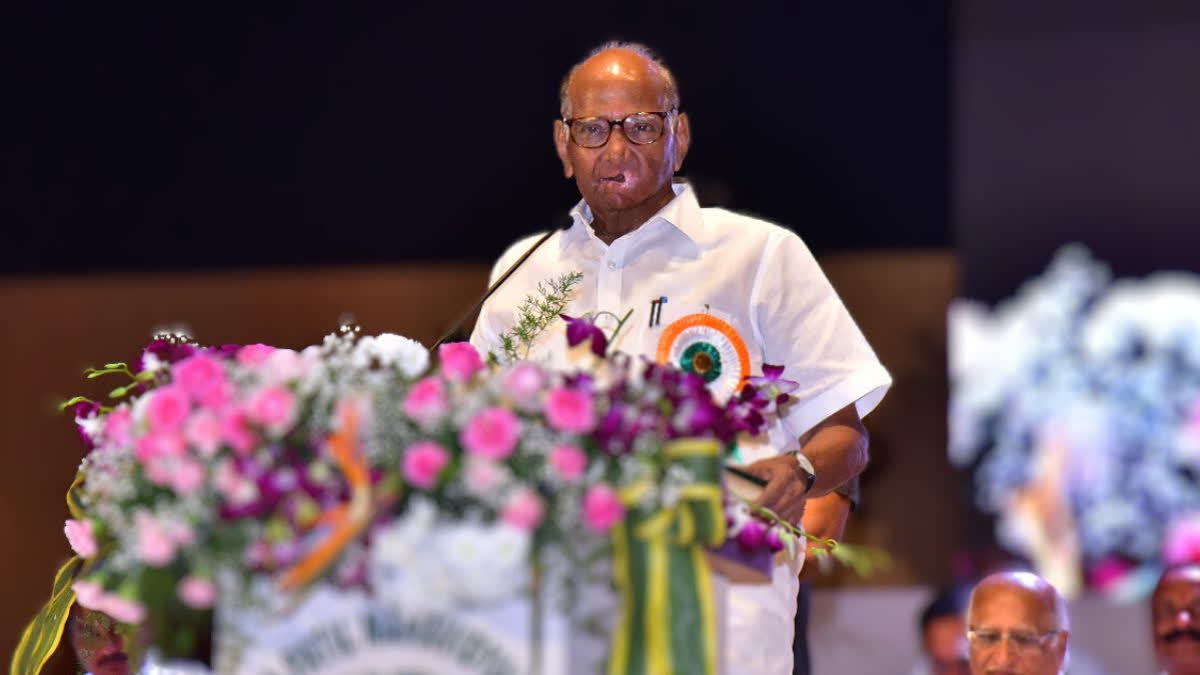Mumbai (Maharashtra) : The grand journey of Sharad Pawar, the renowned Rajya Sabha MP and NCP Chief, is an ode to his remarkable contribution to Indian politics, spanning over five decades. The fervour of his politics, palpable from Maharashtra to Delhi, reflects the depth and expanse of his political acumen.
The announcement of his resignation at a book release program on May 2nd, was accompanied by an uproar of statements from all NCP leaders requesting him to withdraw his resignation. Born on December 12, 1940, in the humble village of Baramati near Satara, Sharad Pawar is 82 years old, but his zeal for politics remains undiminished.
Sharad Pawar began his political journey as a student in 1956 when he took out a demonstration march to Pravaranagar in Maharashtra after Goa became independent, which was his first step towards a career in politics. In 1958, Sharad Pawar joined the youth wing of the Congress, expressing his support for the party. In 1962, just four years after joining the Congress, he was appointed the president of the youth unit in Pune district, a position he held for many years. Sharad Pawar remained rooted in the party for many years, holding many important positions in the youth wing of the Congress.
At the tender age of only 27, Sharad Pawar was declared the Congress candidate from Baramati in the Maharashtra assembly elections in 1967. He won the election and continued to win elections from Baramati for many years. As an MLA, Pawar did politics in rural areas, raising the issue of drought in Maharashtra loudly. Along with this, Pawar was very much involved in the political activities in cooperative sugar mills and other cooperative societies.
After Indira Gandhi was expelled from the Congress party following the election of the President in 1969, Sharad Pawar joined Indira Gandhi's faction of Congress, along with Yashwantrao Chavan. In 1975-77, Pawar was handling the Home Ministry in the Shankarrao Chavan government of Maharashtra. A few years later, there was another split in the Congress party, and Sharad Pawar stood in the court of Congress (U). In 1978, the Congress (I) and the Congress (U) contested the elections separately in Maharashtra. However, after the elections, both the factions together formed the government of Vasantdada Patil. In this government, Pawar held the Ministry of Industry and the Ministry of Labour.
At the age of 38, Sharad Pawar left the Congress (U) and formed the government with the Janata Party. This made Pawar the youngest Chief Minister of Maharashtra in 1978. However, after Indira Gandhi returned to power in 1980, this government became a minority. In 1983, Pawar was made the President of the Congress (I) in Maharashtra and became an MP from the Baramati Lok Sabha seat. In 1985, Pawar once again contested the assembly elections from Baramati and won. He expressed his desire to remain in the politics of Maharashtra and resigned from the membership of the Lok Sabha.
